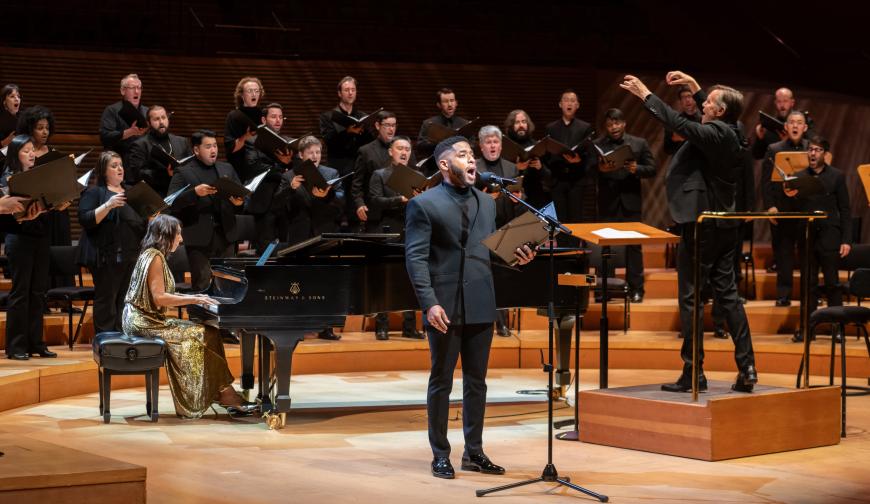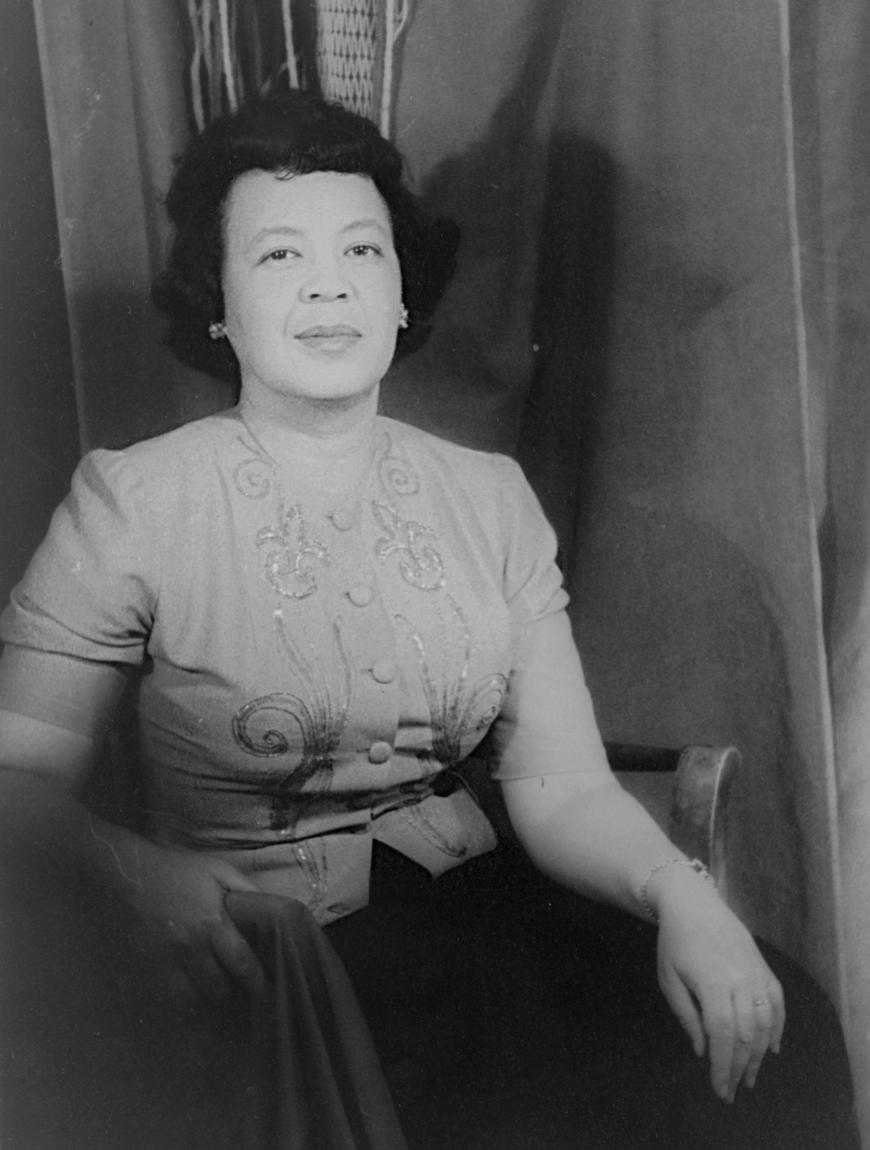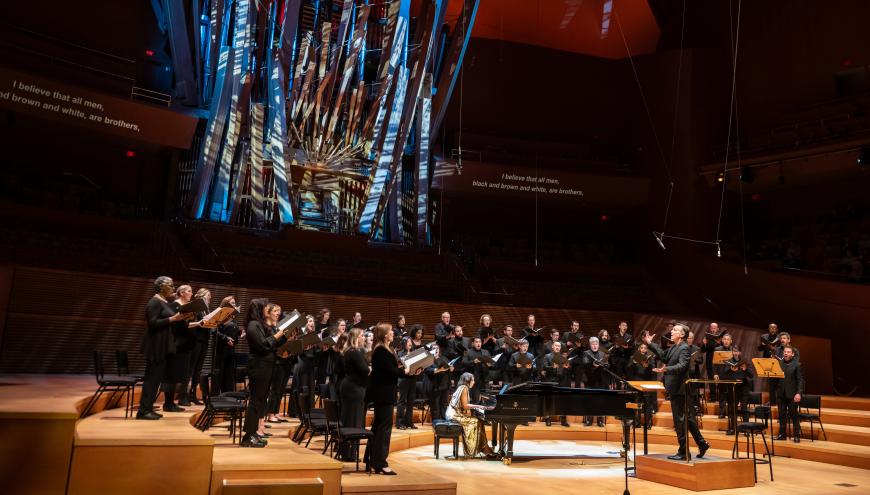
The voice of Chloé Vaught, a soprano soloist with the Los Angeles Master Chorale, floated with a steady warmth throughout the second movement of Margaret Bonds’s cantata Credo. Both playful and wise, Vaught’s standout performance was emblematic of the Master Chorale’s entire concert on April 6 at Walt Disney Concert Hall, which sought to convey messages of deep significance through music that spoke with elegance and joy.
The program, titled “I Believe: The Music of Bach, Bonds, and Robles,” grew from a collaboration between LAMC Artistic Director Grant Gershon and pianist Lara Downes, who has become a champion of Bonds. Alongside her composing, Bonds (1913–1972) was a pianist, arranger, and teacher who was as prolific in her writing as she was in her community-oriented work. As a mid-20th-century Black composer, she has been chronically underperformed, under-published, and under-studied, despite the strength of her music, so evident in last weekend’s performance.

Bonds’s Credo, a setting of W.E.B. Du Bois’s influential 1904 prose poem of the same name, was paired with expertly executed music by J.S. Bach and the premiere of The Song of Significance by Los Angeles composer, vocalist, and teacher Zanaida Stewart Robles. Gershon conducted the concert with his usual gusto and attention to detail.
Credo was premiered in Washington, D.C., in 1967 in a version for choir and solo piano; the piano part was also arranged by Bonds for full orchestra. Sadly, this latter version was premiered by the Los Angeles Philharmonic only a few months after the composer’s death. Now, 52 years later, the piece sounding in its original arrangement in the modern home of the LA Phil felt like a heavy, resounding echo.
Setting Du Bois’s text in its entirety, Credo’s seven movements are devoted to the full communication of the writer’s ideas. The text ranges from grand statements to very specific and grounded observations to the quiet presentation of broad themes — the speaker declares belief in God and the devil, denounces war and colonialism, and imagines a future of “thinking and dreaming.” Bonds tracks this all very closely; her love and personal understanding of the text is unmistakable. She does not particularly push the boundaries of form or musical language for her time, but the craftsmanship and clarity of her setting is remarkable.
Downes’s synchronicity with this composer was abundantly clear from the outset of her performance of Bonds’s Spiritual Suite — a set of solo piano pieces, lovingly based on famous spirituals, that Bonds wrote to end her own recitals. Orchestral and overflowing, the piano writing had the same effortless complexity that came through in Bonds’s choral writing. What’s more, Downes brought Bonds together with Bach through pianist Ignaz Friedman’s arrangement of Wachet auf, ruft uns die Stimme (Sleepers awake). The connection resonated because Friedman (1882–1948) arranged the hymn in an emphatically romantic style.

An amalgamation of sayings and maxims by popular marketing strategist and motivational speaker Seth Godin, the text of Robles’s The Song of Significance is very direct and clear, much like Du Bois’s Credo. However, in the context of Robles’s masterful choral orchestration, romantic and lush, these careful, levelheaded, and precise words felt delaminated from the music. The music didn’t fill in the gaps of one’s understanding of the text because there seemed to be no gaps to fill. There were moments of highly specific text in Credo as well that registered as a bit deep in the weeds.
Still, I found myself being brought over the edge of tears many times during this concert. More than anything, the joyousness of Downes and the Master Chorale came through. You could hear purpose in the music as they dug deep into these pieces whose messages bear such real-world impact, and in the end, we were all lifted high.




